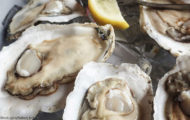As several states around the country try to pass legislation to make the sales of raw, or unpasteurized, milk legal, and the CDC announces a study about a serious Listeria monocytogenes outbreak at the Ropelato Dairy Farm in Utah in 2014 linked to raw milk, the Tennessee Department of Health is weighing in on the topic. They released a statement that “raw milk can be hazardous to your health.”
 The opening paragraph states, “Milk, whether it comes from seemingly healthy cows, goats, or any other animal, can cause serious health problems, including death, if it has not been pasteurized to kill harmful bacteria.” Dr. John Dreyzehner, Tennessee Department of Health Commissioner, says that those who think raw milk has health benefits compared to pasteurized milk should understand the risks.
The opening paragraph states, “Milk, whether it comes from seemingly healthy cows, goats, or any other animal, can cause serious health problems, including death, if it has not been pasteurized to kill harmful bacteria.” Dr. John Dreyzehner, Tennessee Department of Health Commissioner, says that those who think raw milk has health benefits compared to pasteurized milk should understand the risks.
He said, “consuming raw milk believing it’s healthier than pasteurized milk is a perilous risk that shakes off the possibility of a range of serious and occasionally fatal illnesses for the individuals and anyone they share it with. Our best choice for healthy, nutritious milk is the pasteurized kind. Even if one believes there are health benefits, is it worth taking a chance on the risk of a serious illness, especially in a child?”
Before the widespread use of pasteurization, in 1938 25% of all foodborne illnesses were attributed to unpasteurized milk and dairy products. Now those products are responsible for less than 1% of all foodborne illness outbreaks. And the CDC states that even if the milk is routinely and vigorously tested for pathogens, including testing for coliform bacteria which indicate the presence of feces, that does not guarantee that the milk is safe. In fact, in the outbreak in Utah, the milk was regularly tested for bacteria. The milk passed those tests and it still made people sick.
The bacteria present in raw milk tend to cluster in small areas, which can easily elude detection. Furthermore, it can take only a few bacteria to make someone very sick. You cannot see ten E. coli O157:H7 bacteria, for instance, that can cause illness and death.
In the last three years, Tennessee has had several foodborne illness outbreaks associated with raw milk. In 2013, nine children under the age of nine were sickened with E. coli O157 bacteria. Five of those children required hospitalization for hemolytic uremic syndrome (HUS), a serious and sometimes fatal complication of that type of infection. None of the children, fortunately, died in that outbreak.
Tennessee State Epidemiologist Dr. Tim Jones said in a statement, “the most common arguments we hear about raw milk as ‘pasteurization kills the good parts of milk’ and ‘people have been drinking milk for years without harm.’ In reality, the process of pasteurization is a simple heating process that destroys bacteria without causing significant change to the nutritional benefits of milk. No one really knows how many people may have been harmed by drinking raw milk because the effects can mimic other health issues, and illnesses and deaths in the past may not have been properly linked to the contaminated milk they consumed.”
The most common cause of milk contamination include animal feces in the product. Without pasteurization, raw milk from even the cleanest, must well-run dairy farms can contain harmful bacteria. The bacteria do not change the taste, color, or small of milk, but can cause days of diarrhea, stomach and abdominal cramps, and vomiting, and in some cases kidney failure or paralysis.
Dr. John Dunn, a veterinarian who directs zoonotic disease outbreaks with the Tennessee Department of Health said, “if you think about where milk comes out of a cow or goat, you know it’s not far from where manure comes out. Even very conscientious cleaning of the udder and care while milking can’t prevent all risks of contamination during the milking process.”
Those who are the most risk for serious illness from unpasteurized milk are small children, the elderly, people with weakened immune systems, who have had an organ transplant, are undergoing treatment for cancer, or who have other chronic illnesses. Young children have the highest risk for harm and little ability to make an informed decision about the risk.




